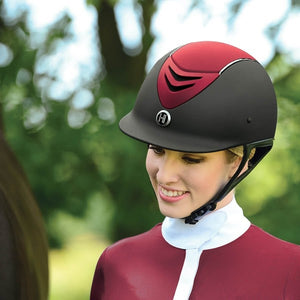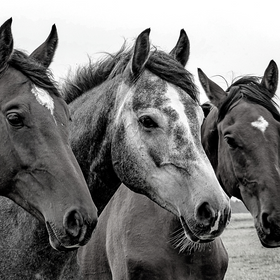
Identifying & Treating Summer Sores
As we break into the summer, flies are more prevalent, and summer sores are too. Prevention is always better than treatment. Keeping your horse on a regular deworming and fecal check schedule is an excellent way to help prevent summer sores. If you think your horse might have summer sores, contact your vet, and start treatment ASAP.
Summer Sore Causes
Summer sores are an equine skin irritation or sore caused by ingesting fly larvae from bedding, feed, manure, and around the pasture. This condition results from a complex association between your horse, a stomach worm, and the environment. You’ll generally notice these sores during the summer or fall months.
Sore Identification
Summer sores are most commonly found around sensitive areas such as the eyes, lips, sheath, and lower legs. Take a close look at your horse’s skin and watch for raised skin, hair loss, and pink/red skin color. Most often, summer sores will start in large circular patches. When left untreated, the sore can spread over larger areas of the skin and cause deeper infections. In very severe cases, you may notice stomach issues such as gastrointestinal irritation, colic, and weight loss.
Treatment
These sores are painful and are an external symptom of a stomach worm infestation. You must treat both the symptom (sores) and the underlying cause (worms) to rid your horse of summer sores successfully. If you treat only one of the issues, you will likely have a recurrence fairly quickly.
You’ll treat the skin irritation similarly to the way you would treat a normal wound. Gently debride the wound and treat with a topical ointment to prevent further infection and irritation. If you are uncomfortable doing this procedure yourself, your veterinarian can help. Depending on the severity of the sores and skin reaction, your veterinarian may recommend a round of steroids to reduce inflammation.
Now, to treat the internal parasites, which are the core issue. Most commercial deworming products will treat stomach worms very effectively. Ivermectin is one of the most commonly used for stomach worms. Consider having your vet complete a fecal egg count on your horse to determine the worm load's severity. This can help guide you and your veterinarian when deciding on the best deworming product for your horse.
Routine fecal egg counts are highly recommended for proper parasite management in horses. This gives you a complete view of what your horse is exposed to and their parasite load. With this information, you can customize your deworming schedule to meet the unique needs of your horse.
You can also make a few adjustments to your barn management routine to incorporate preventive measures. Make sure manure is picked up daily, and keep airflow throughout your barn to prevent stagnant air and water, both of which attract bugs. Investing in fly traps, fly strips, and good fly sprays can also reduce the number of flies in and around your barn. If you can successfully reduce the fly population, you’ll significantly reduce the chances of your horse getting summer sores again.





